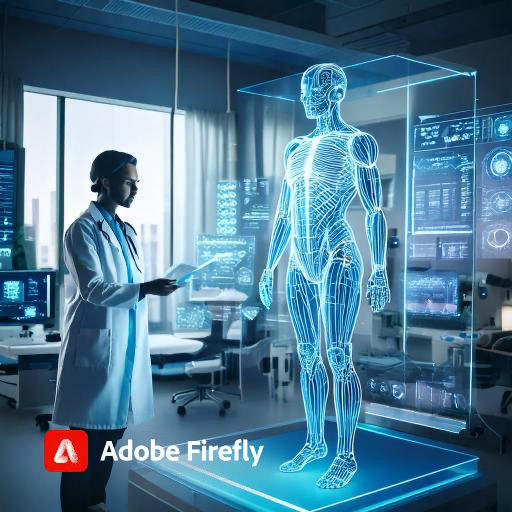Artificial Intelligence (AI) has profoundly transformed the healthcare industry, revolutionizing various aspects from diagnostics to patient care and administration. By processing and analyzing vast amounts of medical data far beyond human capability, AI enhances disease diagnosis, outcome prediction, and treatment recommendations. For instance, AI algorithms excel at interpreting medical images like X-rays and MRIs, often detecting conditions like cancer earlier and with greater accuracy and speed compared to human radiologists. This precision in medical imaging and diagnostics has become a crucial asset, demonstrated by pioneering projects like Google’s DeepMind Health, which diagnoses eye diseases from retinal scans with expert-level accuracy, and IBM’s Watson Health, which has advanced personalized medicine.
AI’s applications in healthcare are extensive and impactful, reaching far beyond diagnostics. In patient care management, AI-driven chatbots and virtual assistants provide 24/7 monitoring and support, enhancing patient engagement and adherence to treatment plans. AI also accelerates drug discovery by predicting how drugs will interact in the body, reducing the time and cost associated with clinical trials. Additionally, AI-based predictive analytics analyze patterns in patient histories and current health data, allowing healthcare providers to anticipate risks and deliver proactive, preventative care. This predictive capability leads to better patient outcomes and reduced healthcare costs.
Administrative efficiency has also greatly benefited from AI integration. Automating tasks such as appointment scheduling, managing electronic health records, and processing insurance claims reduces the workload for healthcare professionals, enabling them to focus more on direct patient care. This automation improves operational efficiency and the overall patient experience.
Despite these advances, the implementation of AI in healthcare faces several challenges, including technical, ethical, and social considerations like privacy, safety, consent, accessibility, and efficacy. Effective governance is essential to ensure patient safety, accountability, and to build trust among healthcare professionals and patients. Proper oversight can help address regulatory and ethical issues while fostering acceptance of AI technology. The COVID-19 pandemic underscored AI’s vital role in healthcare, from early diagnostics to outbreak management, sparking a significant leap forward in AI-driven solutions. As AI continues to evolve, it promises even more significant advancements in healthcare, making it a fundamental component of modern medicine and paving the way for better, more personalized health outcomes for all.
Author: Aitana Vaamonde Armas




